Alonge – self-portrait – seated, c. 1942
Photography, they say, is the art of finding beauty and grace in the ordinary. With light and a camera, it becomes a canvas for painting, a language for storytelling, and a tool for evoking emotions. In the hands of the photographer, even the mundane transforms into timeless art.
Chief Solomon Osagie Alonge found his voice and expression in photography as early as 19. Born in Benin City in 1911, Alonge moved to Lagos at 14 fresh out of elementary school. It was there he discovered his passion for photography and began an apprenticeship to hone his craft. Armed with his newfound skills and determination, he returned to Benin City to fully embrace the life of a photographer.
In those early years, Alonge ventured far and wide, capturing life in motion.From school portraits to lively gatherings at social clubs, bustling sporting events, and grand government ceremonies, his lens saw it all.
You know that saying from the Bible about a diligent man standing before kings and not mere men? Well, Solomon Alonge lived it. In 1933, he became the official court photographer to the Oba of Benin, Akenzua II. For over 50 years, he documented the splendour and traditions of the royal court – the pageantry, rituals, regalia, and coronations of the Oba and the Queen Mother, Iyoba.
But Alonge wasn’t just the royal family’s photographer; he was the storyteller of his community. Through his commercial photography, he preserved the everyday lives of Benin City’s people – their smiles, gatherings, celebrations, and history. Alonge’s camera documented a society in transition – from colonial structures to the rise of new churches, businesses, civic organisations, and social groups in the 1930s and 1940s. His Ideal Photography Studio, established in 1942, became a hub for portraits that captured how people wanted to be seen: proud, elegant, and full of life.
His extraordinary collection includes over 2,000 glass plate negatives, large-format film negatives, and more than 100 hand-tinted and black-and-white prints.
Today, we celebrate the life and work of Chief Solomon Osagie Alonge (1911–1994), one of Nigeria’s foremost photographers and the first indigenous photographer of the Royal Court of Benin.
Below, you’ll find some of the historic images from his remarkable collection—visual treasures that continue to inspire and preserve our heritage.
Oba Akenzua II greets Queen Elizabeth and Prince Philip (not shown) on a Royal visit to Benin City. On the left is Chief Jeremiah Obafemi Awolowo, first Premier of the Western Region, 1952-1959. On the right is Sir John Rankine, Governor, Western Region, Nigeria, 1954-1960.
Portrait of Chief Francis Edo Osagie, 1960.
Alonge’s assistants washing prints outside the Ideal Photography Studio, Benin City. c 1960
Wedding portrait
Visit of the Earl of Plymouth [right] to the Oba of Benin, Oba Akenzua II, Benin kingdom, Nigeria. Oba Akenzua II holds the coral regalia of Oba Ovonramwen, returned by the British in 1938. Sir John Macpherson, Governor-General of Nigeria, stands on the left, 1935.
Alonge – self-portrait – seated, c. 1942
Daughter of Oba Eweka II, wearing commemorative cloth from coronation of King George VI, May 1937.
Madame Ogiugo, 1960.
Photo Credit: (Images: Solomon Osagie Alonge/Chief S. O. Alonge Collection, Eliot Elisofon Photographic Archives, via Hyperallergic)

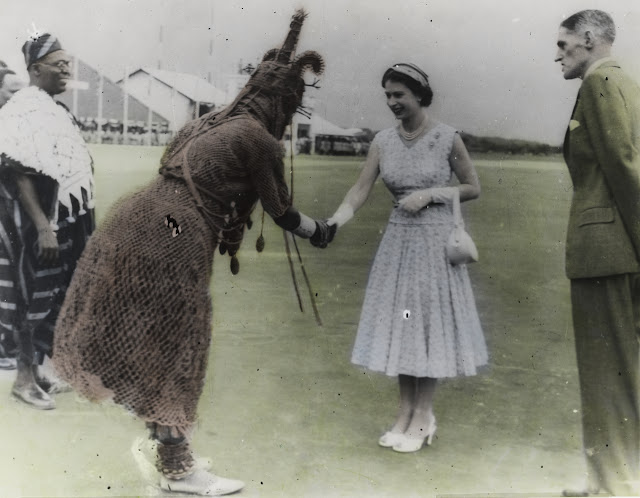
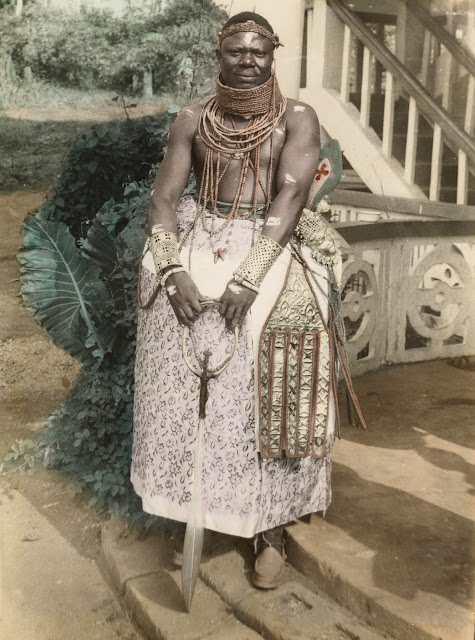
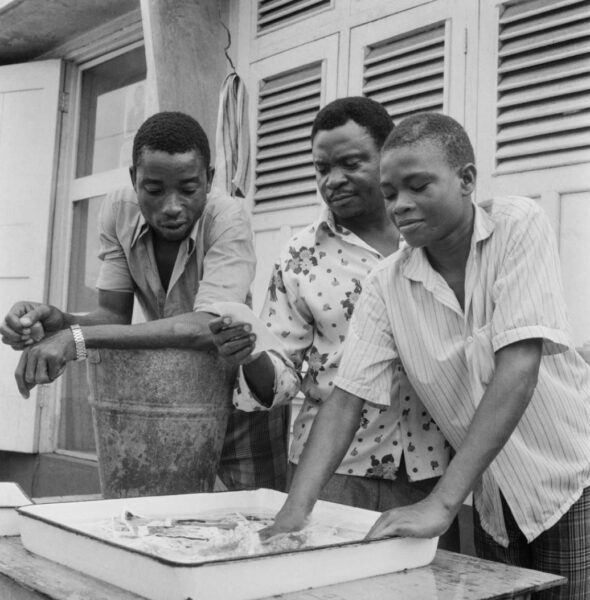
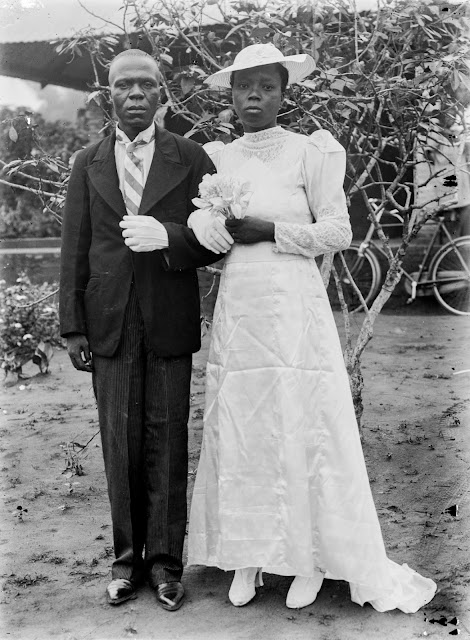
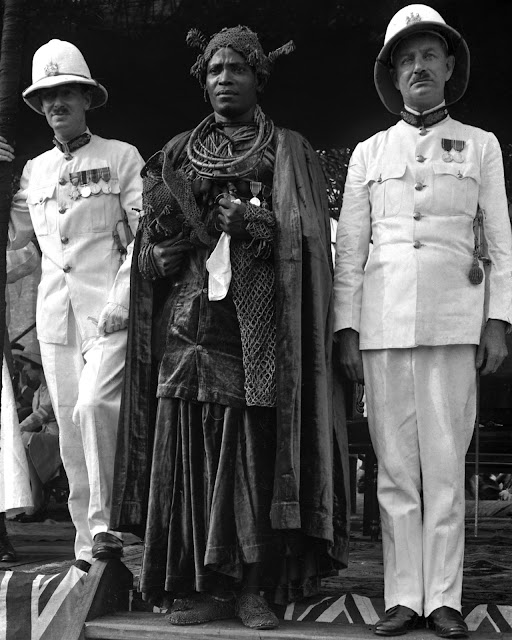
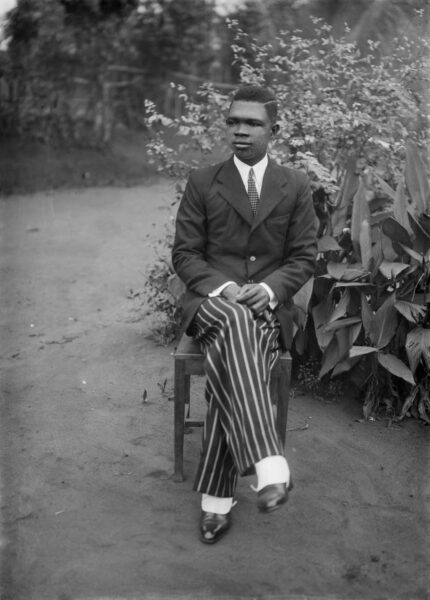
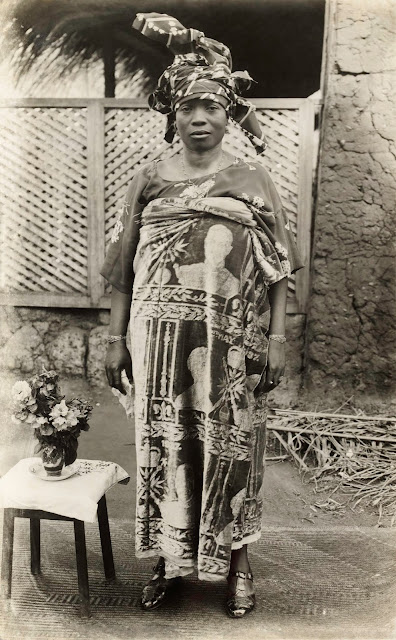
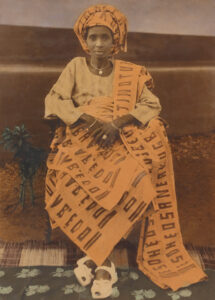

Hi, Neat post. There is an issue along with your site in web explorer, may test thisK IE nonetheless is the marketplace leader and a big part of folks will omit your excellent writing due to this problem.